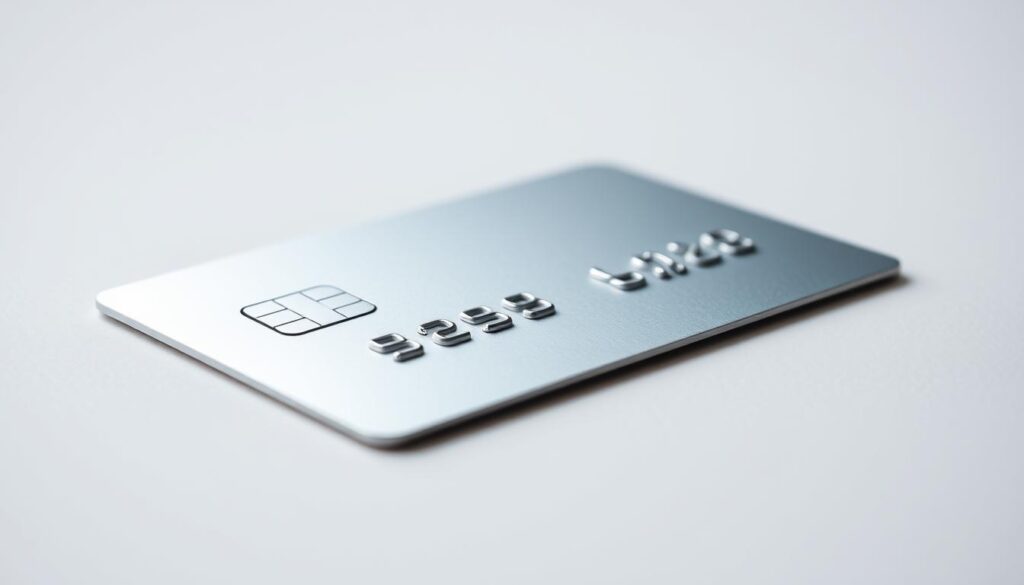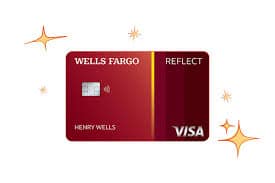Choose your credit card limit
Starting your journey as a first-time credit card holder can feel overwhelming, especially if you’re not familiar with how credit works. The good news is that with the right approach, it’s not only manageable but also a valuable opportunity to build your financial future.
Anúncios
This guide will walk you through every stage of the process — from understanding what a credit card is, to checking your credit report, comparing card options, and finally using your card responsibly. By the end, you’ll feel confident about applying for your first card and making smart decisions that protect your credit health.

Chime Credit Builder Card

Understanding Credit Cards
Before you even think about applying, it’s important to understand what a credit card really is — and what it isn’t.
A credit card is not free money. It’s a financial tool that allows you to borrow funds up to a certain limit and repay them later. When used wisely, it can make life more convenient, open doors to rewards, and help you establish a strong credit profile. When misused, it can lead to debt and financial stress.
How a Credit Card Works
When you make a purchase with your credit card, the issuer covers the cost for you. You’ll then receive a monthly statement showing what you spent and the minimum amount you must repay. If you pay the full balance by the due date, you won’t owe interest. If you pay less than the full amount, interest will be added to the remaining balance.
Why You Might Need a Credit Card
- Convenience: Pay for purchases quickly and securely, both in-store and online.
- Emergency backup: Have access to funds in case of unexpected expenses.
- Rewards and perks: Earn cashback, points, or travel miles for eligible spending.
- Credit building: Establish a track record of responsible borrowing to qualify for future loans or mortgages.
Note: Rewards and perks vary by issuer and are subject to terms. Always read the details before applying.
Types of Credit Cards
Not all credit cards are created equal. Choosing the right type for your needs is the first step toward success.
Secured Credit Cards
A secured credit card requires you to make a refundable cash deposit, usually equal to your credit limit. These are designed for people with little or no credit history, or for those rebuilding damaged credit.
Advantages:
- Easier approval process.
- Builds credit when payments are made on time.
Unsecured Credit Cards
An unsecured card does not require a deposit. Approval depends on your credit history and income.
Advantages:
- No upfront security deposit.
- Often come with higher limits and better rewards.
Student Credit Cards
Tailored for college students and young adults starting their credit journey. These cards usually offer lower limits, straightforward terms, and sometimes special rewards for common student purchases.
Advantages:
- Lower entry requirements.
- Often have no annual fees.
Checking Your Credit Report and Score
Your credit report is a record of your borrowing history, and your credit score is the number that summarizes it. Lenders use both to decide whether to approve you for a card and on what terms.

Discover It Cash Back
Why It’s Important
A strong credit score can:
- Increase your chances of approval.
- Unlock lower interest rates.
- Help you qualify for better rewards cards in the future.
How to Get Your Report
In the U.S., you’re entitled to one free credit report each year from each of the three major bureaus: Experian, TransUnion, and Equifax. Visit their official websites to request your copy.
What to Look For
- Accuracy of your personal details.
- Correct listing of accounts and payment history.
- Any errors or unfamiliar accounts that may indicate fraud.
The Application Process
Once you’ve checked your credit and chosen the type of card you want, it’s time to apply.
Documents You’ll Typically Need
- A valid government-issued ID (driver’s license, passport).
- Proof of income (pay stubs, bank statements, or tax returns).
- Social Security number (in the U.S.) for identity verification.
Steps to Apply
- Research options and choose the best card for your needs.
- Prepare documents to speed up the process.
- Submit the application online, by phone, or in person.
- Wait for approval — in some cases, this is instant.
Note: Never apply for multiple credit cards at once. This can temporarily lower your credit score.
Reviewing Terms and Conditions
Before signing up for any credit card, always read the fine print. This helps you avoid unpleasant surprises later.

Wells Fargo Reflect Credit Card
Key Things to Check
- APR (Annual Percentage Rate): The cost of borrowing if you carry a balance.
- Annual fees: Some cards charge a yearly fee; others do not.
- Other charges: Foreign transaction fees, cash advance fees, and late payment penalties.
- Rewards terms: How you earn and redeem points or cashback.
Choosing the Right Card for You
The “best” card depends on your financial habits and goals.
Compare Interest Rates
If you plan to carry a balance, choose the lowest APR available.
Match Rewards to Your Spending
Travel often? A miles-based card might be best. Spend mostly on groceries and gas? Look for high cashback rates in those categories.
Weigh Fees Against Benefits
A card with a high annual fee might be worth it if the perks outweigh the cost — but only if you’ll use them.
Understanding Credit Card Fees
Fees can eat into your budget if you’re not careful.
Annual Fees
Some cards have no annual fee, while premium cards may charge $100 or more. Decide if the rewards justify the expense.
Other Common Fees
- Late payment fees for missing your due date.
- Cash advance fees for withdrawing cash.
- Foreign transaction fees when spending abroad.
Using Your Credit Card Responsibly
A credit card can be your best friend or your worst enemy — it depends on how you use it.
Make Payments On Time
Pay at least the minimum amount by the due date every month.
Avoid Interest
Pay your balance in full each month whenever possible.
Keep Utilization Low
Try to use less than 30% of your credit limit. This shows lenders you manage credit well.
Building and Maintaining a Strong Credit History
Your credit history is built over time through consistent, responsible usage.
Credit Utilization
This is the percentage of your available credit that you’re using. Lower is better.
Payment History
On-time payments are the single most important factor in your credit score.
Length of Credit History
The longer your accounts are open and in good standing, the better.
Monitoring Your Credit Score
Don’t just check your score once — track it regularly to spot changes and potential issues.
How to Monitor
- Use free apps from your bank or credit card issuer.
- Sign up for credit monitoring services.
- Review full reports annually for accuracy.
Common Mistakes to Avoid
Even responsible borrowers can slip up. Watch out for:
- Applying for too many cards in a short time.
- Ignoring statements and missing payments.
- Using your credit card for unnecessary expenses.
Conclusion
Getting your first credit card is more than just a milestone — it’s the beginning of your credit journey. By taking the time to research your options, checking your credit report, comparing fees and benefits, and using your card responsibly, you can build a strong foundation for your financial future.
Remember: A credit card is a tool. Use it wisely, and it can open doors to better opportunities, from lower loan rates to premium rewards programs. Use it carelessly, and it can lead to debt and stress.
FAQ
1. What are the benefits of having a credit card?
Convenience, rewards potential, and the ability to build your credit history.
2. How does a secured card work?
You make a cash deposit, which becomes your credit limit. This reduces risk for the lender and helps you build credit.
3. What’s the difference between secured and unsecured cards?
Secured cards require a deposit; unsecured cards don’t but need stronger credit.
4. Why should I check my credit report?
To make sure it’s accurate, spot fraud, and understand your approval odds.
5. What documents will I need to apply?
A valid ID, proof of income, and a Social Security number (in the U.S.).
6. How can I compare credit card interest rates?
Look at the APR and consider whether you plan to carry a balance.
7. What should I think about when evaluating rewards?
Make sure the rewards match your spending habits and justify any fees.
8. What fees should I watch out for?
Annual fees, late payment fees, cash advance fees, and foreign transaction fees.
9. How do I avoid interest charges?
Pay your balance in full every month before the due date.
10. What’s the ideal credit utilization ratio?
Stay below 30% of your total credit limit for the best impact on your score.



